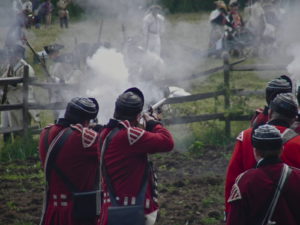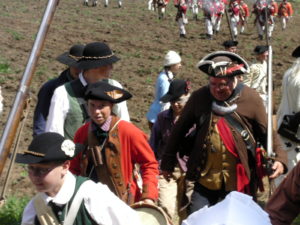My friend Susan Campbell Bartoletti has a new book out: They Called Themselves the K.K.K.: The Birth of an American Terrorist Group.
You should buy it and read it. Five reviewing publications have given it stars (so far). Sue has written a fascinating account of her research trip to Arkansas to attend a KKK Congress. (They don’t call them rallies anymore.) She wrote four blog entries from 8/23 – 26 with details of the trip.
Thank you all for the questions you’ve been sending in. I will keep answering them in the coming weeks.
I’m impressed by all you accomplish: your writing, gardening, running, and family time. Could you discuss what you give up to make this happen -or- perhaps share your typical schedule?
This is an awesome question. And it has a partial connection to Sue.
Sue Bartoletti is one of the friends with whom I’ve had ongoing conversations (for years) about how to balance writing with life. And how to balance life with life.
If I do – occasionally – have my life in balance, it is because of friends like Susan, and Betsy Partridge, and Deb Heiligman, fellows writers and travelers on the creative journey who share my values. Lesson One: Seeking out kindred spirits is one of the most important things you can do for your own spirit and for your writing.
The second piece of my balancing act happened on September 21, 1981. That was the day that Sandra Day O’Connor was confirmed as the first female Supreme Court Justice in the history of the United States. If you are younger than 40, this probably does not seem like a big deal. It was HUGE.
I heard the news when I was driving home from my community college classes. I was 18 years old. The news was so shocking and amazing and world-changing, I pulled my car over to the side of the road and cried. In an interview later, Justice O’Connor said (paraphrasing here) that women can do everything, they just can’t do it all at the same time. I think that applies to both men and women and I think it is advice that applies throughout our adult lives. Lesson Two: Most of the time you can’t do everything that you want. So you have to be really clear on what your true priorities are.
The third piece of my balance started on a very scary night in a hospital about 12 years ago. My life was completely out of balance at that point and (not surprisingly) I was sick. A lot. One lung infection got out of hand and landed me in the hospital, jacked up on meds that made breathing easier and sleeping impossible.
The old woman in the bed next to me couldn’t sleep either. She spent the entire night talking to the very patient nurse’s assistant who held her hand. The old woman talked about how she regretted all the mistakes she made in her life that had brought her to that point. She was dying and none of her children or grandchildren would visit her.
I kept watching the second hand whirring around the clock on the wall. By dawn, I decided to change the way I’d been living. Because, Lesson Three: You’re going to die. So you might as well take charge of your life while you can.
It did not happen overnight. I was very good at taking one step backwards for every two steps I took forward. But I started to write more. To read more. To vent in my journal. To think about the kind of life I really wanted to live. I exercised. I explored art. I made peace with some broken relationships.
What did I give up? I gave up the bullshit. I stopped volunteering for causes I did not truly believe in. I stopped watching most television. I stopped trying to mold my life into the plastic suburban dream that I had deluded myself into believing would fit me.
And somehow I wound up here.
How you spend your time tells you as much (if not more) about your life than how you spend your money. If you have to dedicate 40 or 50 hours a week to a job that pays the bills, or to the care of people who depend on you, or to your education… or a combination of those three things, then I hope you have the integrity to pour the right amount of energy into those tasks.
Most of us squeeze our writing into the cracks of time that appear around the edges of our major responsibilities. Your time for your writing is precious and rare. How can you protect it?
I promise I’ll post about my daily schedule soon. Right now, you need to get to work.
Ready… “I’m a rewriter. That’s the part I like best…once I have a pile of paper to work with, it’s like having the pieces of a puzzle. I just have to put the pieces together to make a picture.” Judy Blume
Set… find a quiet place. If you keep a calendar, pull it out. Just for the month of August. After you read the prompt, turn off the Internet so you can ponder in peace.
Today’s prompt: Answer the following questions:
In the last month:
1. How much time, on average, did you write every day? Every week?
2. What did you have to give up to do that writing?
3. Do you wish you wrote more? What could you have done to make that happen?
Looking forward…
4. Who are your kindred spirits? How often can you get together with them?
5. What are the essential priorities in your life?
6. What habits steal time from your priorities?
7. In anther ten years, which of those habits will have brought you a deeper sense of satisfaction in your life?
8. What do you need to change to create time and space for writing (and other art) in your life?
9. What is holding you back from making those changes?
10. How do you feel about that?
Scribble…Scribble…Scribble!!!






